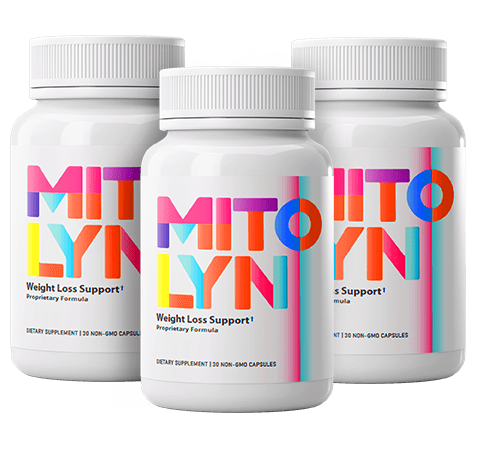In today’s fast-paced world, it’s more important than ever to take care of our cardiovascular health. With heart disease being one of the leading causes of death worldwide, it’s crucial to prioritize our heart health and make positive lifestyle changes to improve our overall well-being. In this comprehensive guide, we’ll discuss 10 essential tips for enhancing your cardiovascular health, from incorporating regular exercise to making smart dietary choices. By following these tips, you can lower your risk of heart disease, improve your cardiovascular fitness, and lead a healthier, happier life.
1. Stay Active
Regular physical activity is essential for maintaining a healthy heart. Aim for at least 150 minutes of moderate-intensity exercise per week, such as brisk walking, cycling, or swimming. Exercise helps strengthen your heart muscle, improve circulation, and lower blood pressure. It also helps reduce stress, boost mood, and prevent weight gain. Incorporate a variety of activities into your routine to keep things interesting and challenging.
2. Eat a Heart-Healthy Diet
A balanced diet rich in fruits, vegetables, whole grains, lean proteins, and healthy fats is key to supporting cardiovascular health. Limit your intake of saturated fats, trans fats, cholesterol, and sodium, which can raise your risk of heart disease. Opt for heart-healthy foods like salmon, nuts, seeds, and olive oil. Avoid processed foods, sugary beverages, and excessive alcohol consumption. Remember to stay hydrated by drinking plenty of water throughout the day.
3. Manage Your Weight
Maintaining a healthy weight is crucial for reducing your risk of heart disease. Excess weight puts strain on your heart and can lead to high blood pressure, high cholesterol, and diabetes. Aim to achieve a healthy body mass index (BMI) through a combination of diet and exercise. Focus on portion control, mindful eating, and regular physical activity to reach and maintain a healthy weight.
4. Quit Smoking
Smoking is one of the leading causes of heart disease and other serious health conditions. If you smoke, quitting is one of the best things you can do for your heart. Smoking damages your blood vessels, increases your risk of blood clots, and raises your blood pressure. Seek support from healthcare professionals, join a smoking cessation program, or try nicotine replacement therapy to help you quit for good.
5. Manage Stress
Chronic stress can take a toll on your heart health by raising your blood pressure, increasing inflammation, and promoting unhealthy coping behaviors like overeating or smoking. Find healthy ways to manage stress, such as meditation, yoga, deep breathing exercises, or spending time in nature. Prioritize self-care, set boundaries, and seek support from friends, family, or a therapist to help you cope with stress effectively.
6. Get Enough Sleep
Quality sleep is essential for overall health, including cardiovascular health. Aim for 7-9 hours of sleep per night to allow your body to rest and recharge. Poor sleep can contribute to weight gain, high blood pressure, and insulin resistance, all of which are risk factors for heart disease. Create a relaxing bedtime routine, establish a consistent sleep schedule, and create a comfortable sleep environment to promote restful sleep.
7. Monitor Your Blood Pressure
High blood pressure, or hypertension, is a major risk factor for heart disease. Get your blood pressure checked regularly and work with your healthcare provider to manage it effectively. Lifestyle changes like regular exercise, a healthy diet, weight management, and stress reduction can help lower your blood pressure. In some cases, medication may be necessary to keep your blood pressure in a healthy range.
8. Know Your Numbers
In addition to monitoring your blood pressure, it’s important to know your cholesterol levels, blood sugar levels, and other key health metrics. High cholesterol, high blood sugar, and other abnormal lab results can increase your risk of heart disease. Work with your healthcare provider to track your numbers, set goals for improvement, and make lifestyle changes to optimize your overall health.
9. Stay Hydrated
Proper hydration is essential for supporting cardiovascular health. Dehydration can lead to electrolyte imbalances, blood thickening, and decreased circulation, all of which can strain your heart. Drink plenty of water throughout the day to stay hydrated and support your heart health. Limit your intake of sugary beverages, caffeine, and alcohol, which can dehydrate you and have negative effects on your heart.
10. Stay Consistent
Consistency is key when it comes to improving your cardiovascular health. Make small, sustainable changes to your lifestyle that you can maintain over the long term. Set realistic goals, track your progress, and celebrate your successes along the way. Remember that improving your heart health is a journey, not a destination, so stay committed to making positive changes for your well-being.
In conclusion, taking care of your cardiovascular health is essential for living a long, healthy life. By following these 10 essential tips, you can reduce your risk of heart disease, improve your cardiovascular fitness, and enhance your overall well-being. Remember to stay active, eat a heart-healthy diet, manage your weight, quit smoking, manage stress, get enough sleep, monitor your blood pressure, know your numbers, stay hydrated, and stay consistent in your efforts to prioritize your heart health. Your heart will thank you for it.










